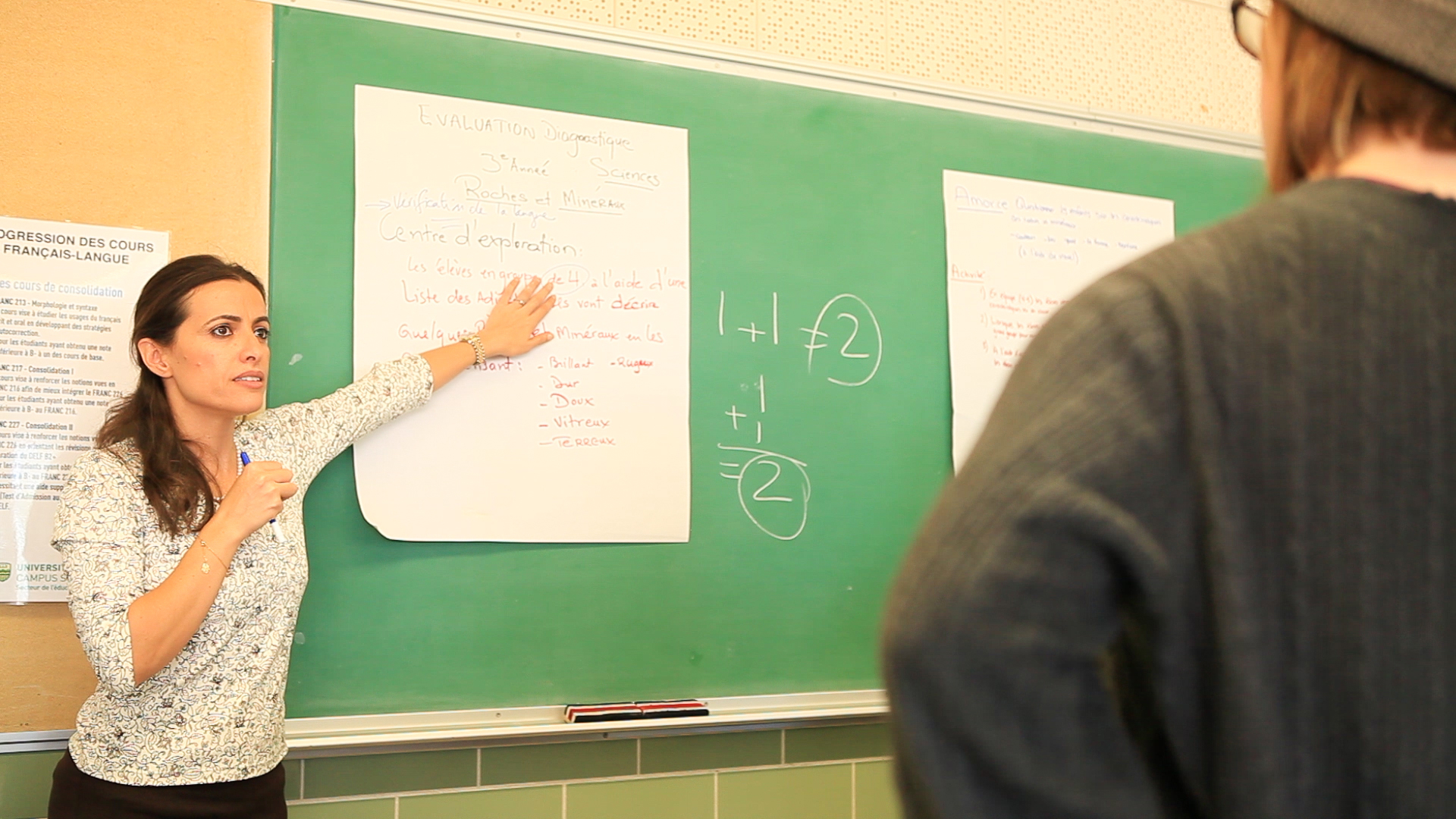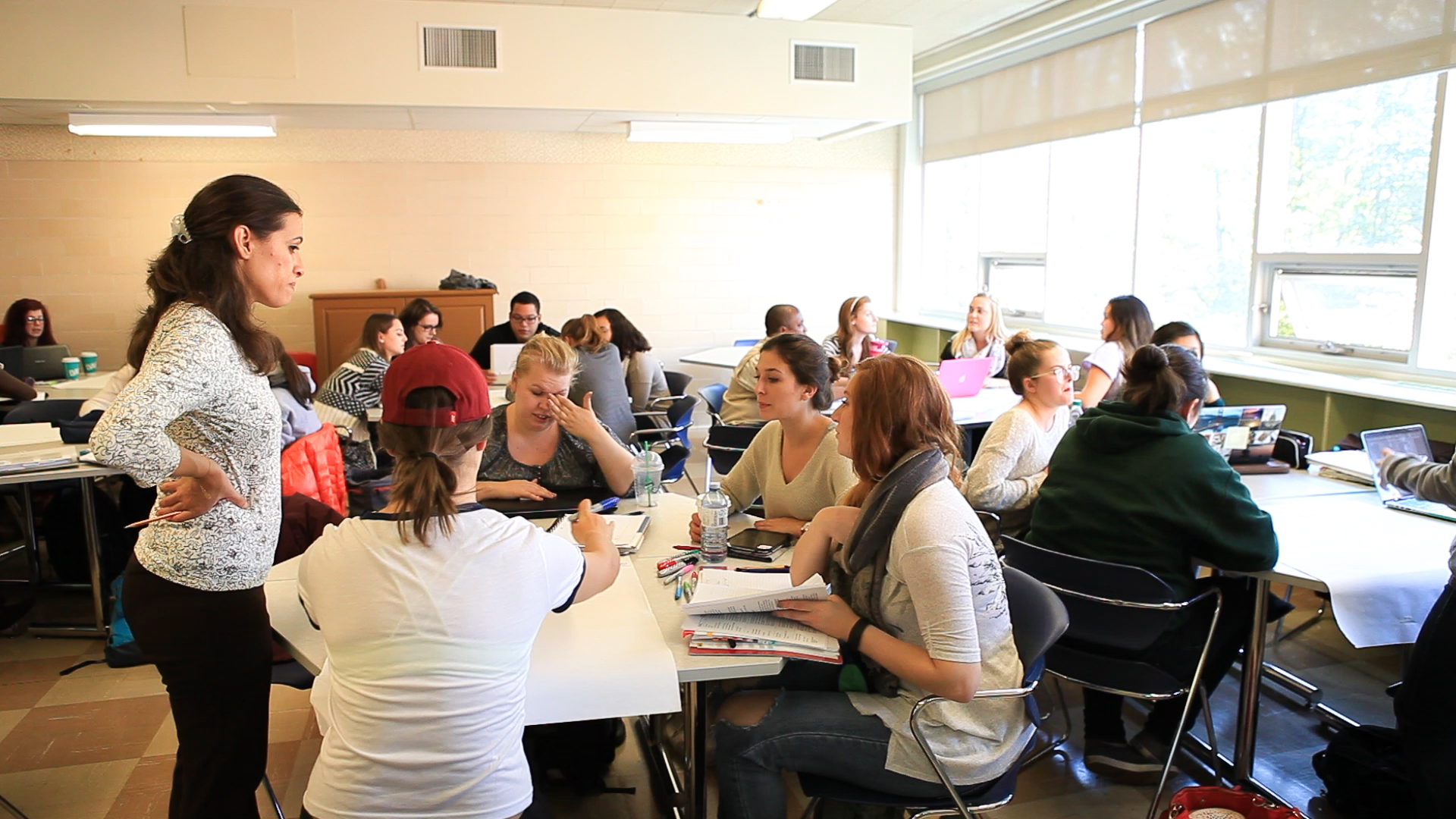Transformative Assessment through a Matrix of Feedback with Dr. Samira ElAtia
Teaching Philosophy Statement
Teaching is not a one size fits all approach; it is not the application of a single method. Teaching is eclectic and dynamic. As a university instructor, I am primarily a facilitator to my students. I have expertise in a subject matter because of my education and research that revolves on this expertise. However, this expertise has to be shared with the students as guiding knowledge in a way that would allow them to use it, interpret it according to their interest and background, mold it and synthesize it for their future. They should be able, through various approaches to convert knowledge into skills, to amend and adapt it according to their own learning strategies through the various platforms provided during the course. As such, I become, in an interactive and iterative way, both collaboratively[1]and cooperatively[2]involved in their learning. I learn from them as much as they learn from me. I learned progressively to let go of a teacher centered approach, in favor of a more open and engaging two-way learning. Since then, my lecturing in class has diminished substantially, but my interaction with the students has increased: Subject matters need to be taught and learned through practice and introspection, not through learning and memorizing concepts.
"Working on the same project 'together' where all individuals are involved in all tasks at the same time."
-Samira ElAtia
"Working on the same project where each individual contributes independently to a given part in the project, then all parts are put together."
-Samira ElAtia

I diversify the methods of teaching and working in class. I minimize class time spent presenting in a teacher-centered model, and I focus more on interactions and on hands-on application and work. In 2007, within my curriculum methodology class, I conducted a research project on a portfolio that I developed to address the quality of students writing within a Writing Across the Curriculum initiative (ElAtia 2009 & 2010, ElAtia et al. 2012). In this study, I was able to find out that students will be engaged in their own learning and will significantly improve their writing when feedback is introduced through a portfolio/journal of language writing errors.

In a typical lesson, my students spend time applying, testing and tweaking class materials, with me answering inquiries and questions that arise. As such, and in order to ensure that the learning outcomes are achieved, I develop my lesson plan around various types of teamwork, in the form of pair project, group project, and even individual work that are presented to the class. I consider myself an extra member of the team: I meet with them during the initial phase of their work, we brainstorm together; and then I provide guidance and lead them to their final work by inductive approaches to learning. I share with them problems and, based on their readings and in- and out-of-class activities, they arrive to solutions. My philosophy is to get them to think critically about all materials presented to them, to synthesize the information gathered, and to always challenge me into deeper conversations about course outcomes. For evaluating learning outcomes in my syllabus, I adopt a formative model anchored in an assessment for learning philosophy: for each exam that they do or an assignment that they handout, they receive feedback and they are asked to reflect on their performance by writing a self-evaluation form and doing auto-correction with a reflection on their learning strengths and weaknesses.
About Dr. Samira ElAtia
Dr. ElAtia is a professor of education and the director of graduate studies in the 'Faculté Saint-Jean' at the University of Alberta. She holds a PhD from the University of Illinois at Urbana-Champaign. She specializes in evaluation and assessment. Her research focuses on issues of fairness in assessment. She is a member of the board of Director of the Centre for Canadian Language Benchmarks. She has served as an expert on several international testing agencies: Educational Testing Services in the US, Pearson Education in the UK, the International Baccalaureate Organization, Chambre du commerce et de l'industrie de Paris, Centre international des études pédagogiques of the Ministry of Education in France.She is the incoming president of the Canadian Association of language Assessment.
Awards
McCalla Professorship 2017